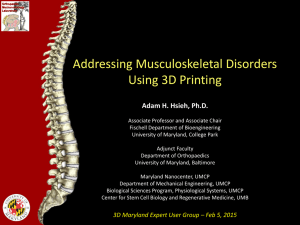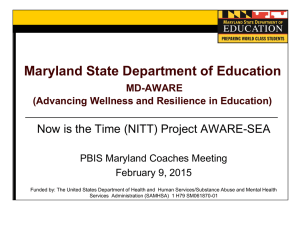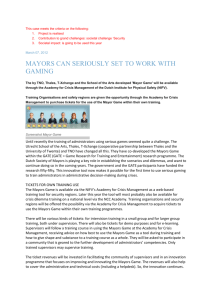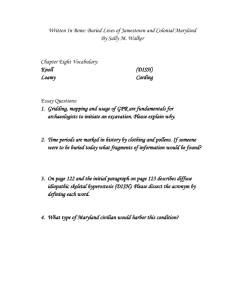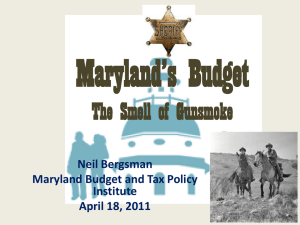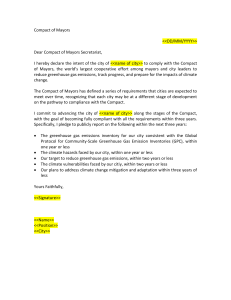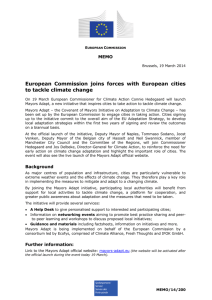Black Mayors Meet with Governor Martin O`Malley
advertisement
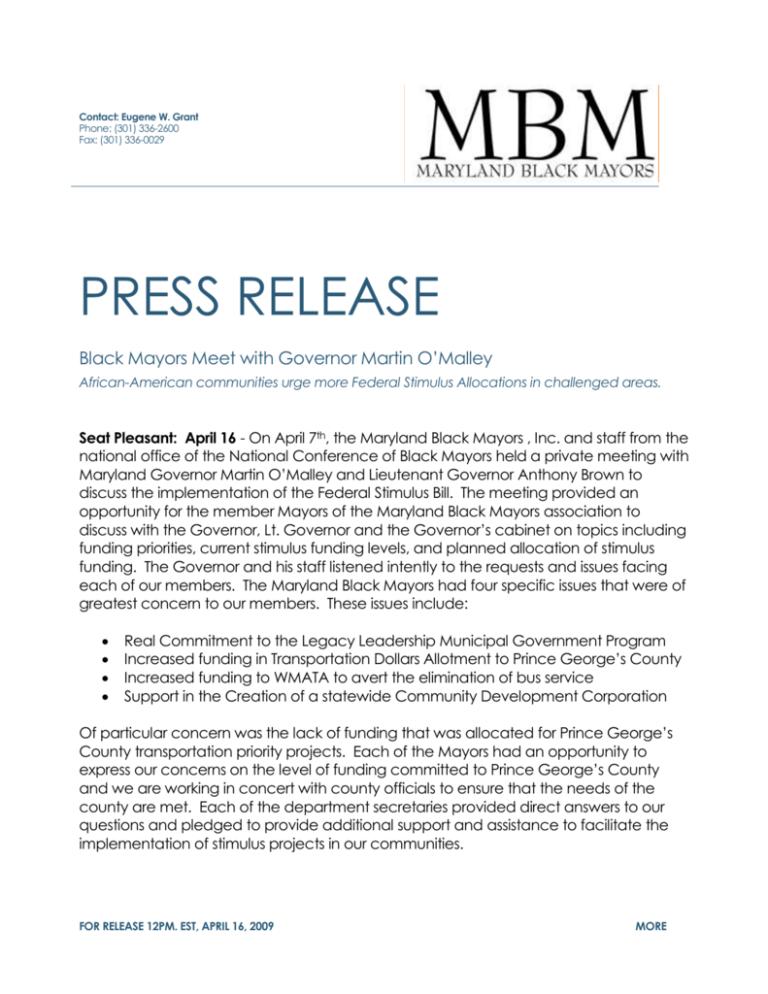
Contact: Eugene W. Grant Phone: (301) 336-2600 Fax: (301) 336-0029 PRESS RELEASE Black Mayors Meet with Governor Martin O’Malley African-American communities urge more Federal Stimulus Allocations in challenged areas. Seat Pleasant: April 16 - On April 7th, the Maryland Black Mayors , Inc. and staff from the national office of the National Conference of Black Mayors held a private meeting with Maryland Governor Martin O’Malley and Lieutenant Governor Anthony Brown to discuss the implementation of the Federal Stimulus Bill. The meeting provided an opportunity for the member Mayors of the Maryland Black Mayors association to discuss with the Governor, Lt. Governor and the Governor’s cabinet on topics including funding priorities, current stimulus funding levels, and planned allocation of stimulus funding. The Governor and his staff listened intently to the requests and issues facing each of our members. The Maryland Black Mayors had four specific issues that were of greatest concern to our members. These issues include: Real Commitment to the Legacy Leadership Municipal Government Program Increased funding in Transportation Dollars Allotment to Prince George’s County Increased funding to WMATA to avert the elimination of bus service Support in the Creation of a statewide Community Development Corporation Of particular concern was the lack of funding that was allocated for Prince George’s County transportation priority projects. Each of the Mayors had an opportunity to express our concerns on the level of funding committed to Prince George’s County and we are working in concert with county officials to ensure that the needs of the county are met. Each of the department secretaries provided direct answers to our questions and pledged to provide additional support and assistance to facilitate the implementation of stimulus projects in our communities. FOR RELEASE 12PM. EST, APRIL 16, 2009 MORE BLACK MAYORS MEET WITH MARYLAND GOVERNOR O’MALLEY PAGE 2 According to Mayor Eugene W. Grant, President of the Maryland Black Mayors Association, “The meeting with Governor O’Malley is the first of many meetings that we will have with the Governor and his staff to ensure that the member cities of the Maryland Black Mayor’s, Inc. receive the maximum benefit from the stimulus bill. Upon receipt of this funding we will work collectively to ensure that the allocated funding is used expeditiously to stimulate job growth and improve the state of the economy for all communities in the Great State of Maryland.” During the meeting, Mayor Grant also received a pledge of support from the Governor for the Maryland Black Mayor’s, Inc. along with the National Conference of Black Mayors to establish a statewide Community Development Corporation (CDC). The National Conference of Black Mayors national office will work directly with the Maryland Chapter to establish this statewide CDC to facilitate community development projects in communities governed by the member Mayors of the Maryland Black Mayors association. This statewide CDC will work with the Department of Housing and Urban Development and the state of Maryland Housing and Community Development to secure funding to conduct development projects throughout the State of Maryland. The primary focus of this CDC will be to spur economic development in communities of color that has endured persistent poverty and poor economic statues even before the global economic crisis occurred. These areas are particularly devastated now and the Maryland Black Mayor’s, Inc. is committed to improving the economic status in these communities throughout the State of Maryland. The Maryland Black Mayors, Inc. is a private, non political, non partisan, non profit corporation; representing over 700,000 citizens and residents and managing over $2.2 billion annually. MBM, Inc. was created to promote and develop program models designed to improve educational, economic, health and social levels within the respective jurisdictions of its members; promote efficient and responsive government within all of the jurisdictions served by the membership, through studies of special or peculiar problems of common concern; and through the creation, implementation, development and maintenance of social, educational, economic and other programs and projects designed ultimately to enhance the quality of life for residents of the affected municipalities. -end-
